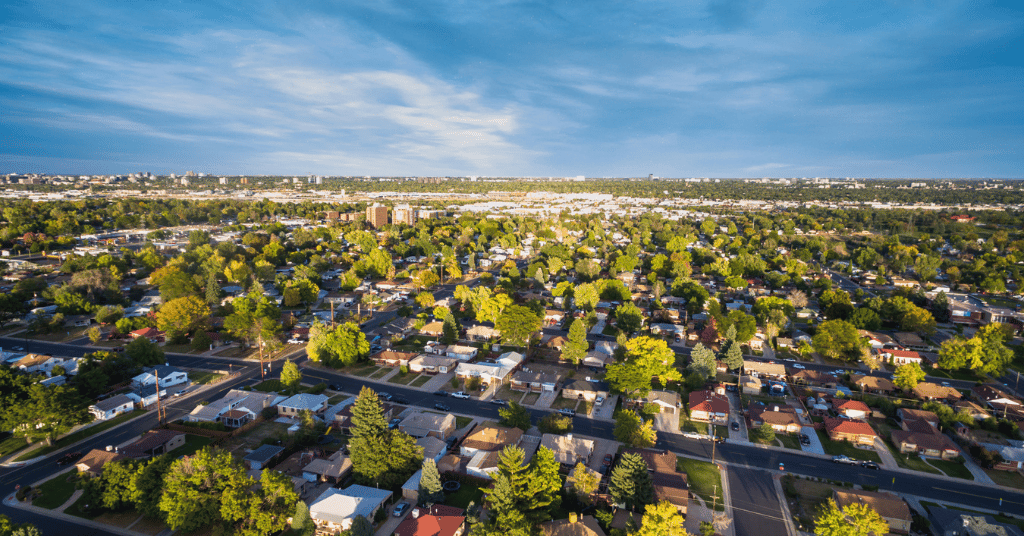Get our e-newsletter for all the exciting updates, events notices and valuable education
Is the HOA Against Real Estate Investors? – And Other Myths
Are HOAs against investors or hedge funds? Read more to understand the controversy.
Posted on August 26, 2022

Recently, a prestigious outlet published an article that made claims about disputes between the Homeowners Association and investors buying property in their neighborhood. Unfortunately, while these claims hold some truth, this article lacked the proper nuance about the reality of the situation. This incident was not between the HOA and all real estate investors, but hedge funds that HOAs are battling.
The problem stems from massive hedge funds with billions of dollars in capital coming into these residential neighborhoods and buying out as many properties they can get their hands on. The original article used the term “Hedge Fund,” but a later edit changed this to Real Estate Investor. This change may have been for the sake of accessibility, for the average non-investor might not fully understand the difference between a hedge fund and a regular property investor. In doing so, they have inspired a drive in Homeowners Associations across the country to pass provisions to limit investment into their communities.
HOAs vs Hedge Funds
One HOA group took this to the extreme, attempting to pass provisions so that no investors can buy any properties in their neighborhood. They seemed to be leading the charge and were able to get an interview published with the Wall Street Journal a second time, which was also rereleased on realtor.com. This ultimately led to other HOAs trying to follow suit. The HOA communities believe non-homeowners will not maintain the property as well as a homeowner, directly decreasing the values of the homes as a result. This is truly their only concern. You can see this in multiple articles written on these topics.
Frankly, this information is misleading. Today we are here to debunk some of the current surrounding myths and provide more insight on what is actually taking place.
Where Did It All Start
The issue stems from hedge funds buying vast amounts of properties in neighborhoods. Given their immense capital, hedge funds have a unique ability to buy hundreds if not thousands of homes. While they have the leverage to buy all these properties, they do not have the resources to maintain these properties sufficiently. They profit off the sheer number of properties they can turn over, not the value they create by rehabbing. For the average investor the intention is different. Average investors see properties as individual projects, extracting value from these investment homes so they can either sell it at a higher value or keep good tenants in there and build passive income. Historically, HOAs welcome these types of investors because they will buy the undesirable “eye sore” properties in order to rebuild and make it better, which ultimately increases the value of the overall neighborhood.
Property Investors Bolster Older Neighborhoods
Time takes a toll on all things, and as neighborhoods become older, more improvements need to be done to maintain a proper standard of living. Situations like these usually cause a mass exodus of current residents into newer developments because the average homeowner lacks the resources and the desire to revitalize aging property. On top of that, these houses will remain vacant, for prospective homeowners will not waste their money on properties that will cost them extra in the long run-on repairs and maintenance. Investors are the ones that ultimately pump life back into these neighborhoods. Rehabbing old properties is not the only perk that investor-owned property will provide. Investors also possess the ability to provide unique sources of financing to people who otherwise could not afford to become a homeowner.
Small Business Would Be Threatened and HOA Percentages
HOAs are tied to each neighborhood they reside, and due to this lack of centralization, there is no direct source for this statistic. With some diligent research, however, we have found that guidelines. Multiple real estate sites compound this lack of information a problem, like HAR.com, the site that non-realtors use to research properties for sale, which removed the button to filter out HOA properties entirely.
If investors are unable to purchase properties in these areas, then ultimately you could see the decline of the “small business” area. Real estate investors go above and beyond to find, improve, and maintain these properties through small businesses in the local community that know the area. Consider how many lending companies or property management companies are out there. All the contractors and construction style companies, too. These industries are dependent on investors, and without them, all of these industries would be drastically changed forever.
HOA Revenue
Since the beginning of July, 8,730 new homes have been added to the Houston Market alone. Remember that more than 94% of all properties located in Houston fall under HOA jurisdiction. If investors only own 50% of those homes (most likely they own more), investors would be bringing to HOA neighborhoods 4,400 new people a month that will be paying HOA fees. That’s more money in their pocket.
HOAs run on the capital that they receive from the homeowners. If an investor can bring in new people to either buy, or rent any of these homes, that is more money in their pocket directly. This means more capital for things like parks in the neighborhoods, group activities, pools, etc. From the right perspective those HOA groups should want investors in there to help increase their capital. The harm from giant hedge funds buying up properties in bulk isn’t fair to put the “little guy” in the same category as them. As self-directed IRA investors, we can help improve neighborhoods by increasing property values for everyone, driving up business for small business owners, and keeping the money in our neighborhoods where it belongs.








